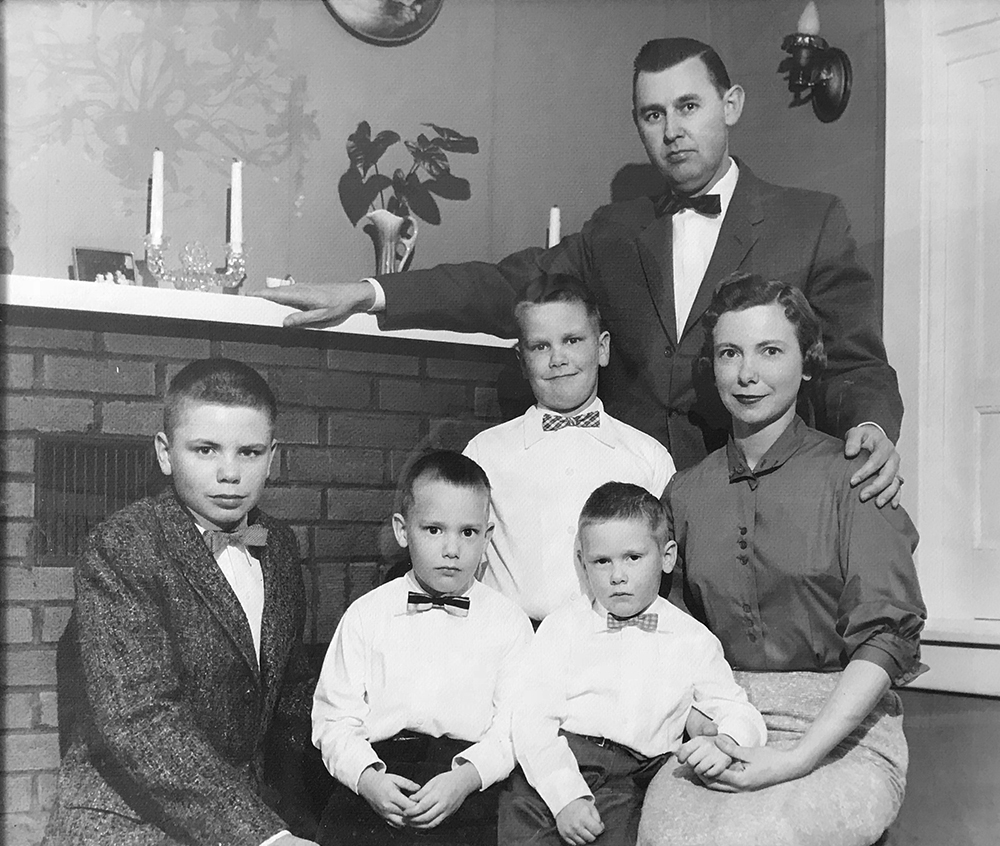
| |
—Yi-Fu Tuan, "Belonging to This Place: A Conversation with Yi-Fu Tuan" (2013) Rootedness and a Sense of Place It is impossible to talk about places that have influenced me without acknowledging my formative years growing up in the small town of Fennimore, Wisconsin, in the Driftless Area. My parents, Joy and Arnie, in different ways, shaped my childhood and subsequently my adult life. Yi-Fu Tuan, the distinguished geographer, makes a distinction between rootedness and sense of place. Rootedness implies familiarity through long residence, a kind of stability that, subjectively, can be defined as an incuriosity towards the larger world. Sense of place, on the other hand, indicates a distancing of self from place, allowing for a different kind of encounter with place. Dad exemplified the definition of rootedness. He was raised in a house one small city block (less than 100 yards) to the east of where our family lived. The first 62 years of his life, he left Fennimore only twice for an extended period. The first was to serve overseas in World War II and the second to attend the School of Pharmacy at the University of Wisconsin-Madison. Rootedness, in addition to being a long tenure in one place, is also a psychological state of mind. Around 1950, Fennimore's main street had four thriving enterprises: a jewelry store, a hardware store, an auctioneering service, and my dad's drugstore—all owned and operated by Heberleins. My father felt a great deal of pride and responsibility in upholding the tradition that went with the family name. The drugstore firmly anchored our family to this place. He worked there six and one-half days a week for 35 years. His sense of place was rooted within the boundaries of the drug store—to the particulars of retail pharmacy and a rigid schedule determined by the clock. I worked in the drugstore from an early age, learning many routines and responsibilities. Mom shared with me a very different understanding of place. She grew up in a far-western suburb of Chicago. The move from a larger metropolitan area to a small agricultural-based town in southwestern Wisconsin was difficult for her and took some adjustment. She raised all of us (four boys) while dad worked in the store. Despite being anchored to the house and domestic duties, Mom always made time for me. She taught me how to cook and play the piano. She encouraged spontaneity and exploration, provided unstructured time to examine my world—to visually daydream. Happily, my parents provided me two distinctly different models about the meaning of place. My father's rootedness, his attachment to the pharmacy in his hometown, provided a sense of stability and security. I attribute my love for the darkroom, in some measure, to those years spent working at the drugstore. Conversely, my mother's patience and curiosity introduced a world to me that my father, obviously, could not provide. I was fortunate to combine both perspectives into rewarding careers as a teacher and artist.
Copyright © 2022 David Heberlein. All rights reserved.
|
